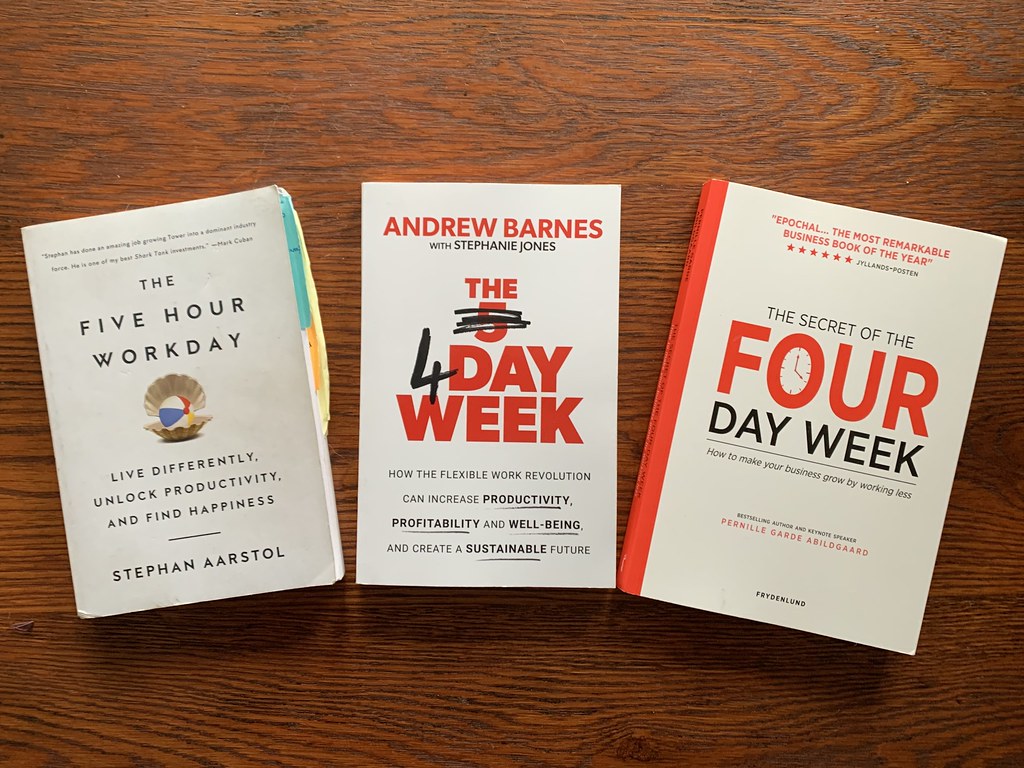“Today, there are many reasons for shortening the working week and support for the option is growing.”
“We don’t care if you are working two hours a week or 200 hours a week, if you are passionate go for it. We only care about you delivering results to the organisation.”
.
A year ago, the VGS was contacted by the author Alex Peng:
The end of the 9-5? How work will change after coronavirus
Should we be moving to a shorter working week? – Vision Group for Sidmouth
The VGS had itself been in touch with the District Council:
Moving towards a Four-Day Week – Vision Group for Sidmouth
Getting the economy going with new ideas – Vision Group for Sidmouth
Things do indeed seem to be going that way…
Last summer, Devon Live covered an experiment in working hours:
Roz Foyer, Scottish Trades Union Congress general secretary, said: “Moving workers to a four-day week, without loss of pay, would bring a wide range of benefits.“We welcome the recommendation that the Scottish Government should expand its four-day week pilot to include more sectors, including non-office-based jobs and those who work different shifts. A four-day week should be for everyone, and research into it should take into account workers other than nine-to-five office workers. If Scotland is serious about creating a wellbeing economy, then a four-day week is a key way to make progress towards it.”
Four day working week with no pay loss being trialled in UK – Devon Live
At the same time, there was a lot of talk of such an arrangement actually helping the post-Covid economy:
The four-day week is gaining interest and new supporters as an effective response to economic and employment problems caused by Covid-19. Working less to improve the economy and job prospects may not seem obvious solution. But it works because, rather than making workers redundant, firms are able to retain their workforce through sharing out available work by reducing the working week for all employees.
Governments across the world are setting out roadmaps for economic recovery and increasingly these feature trials of shorter working weeks. The proposal isn’t new, but its popularity is rapidly spreading and it is winning new converts. Several case studies illustrate how adopting shorter working-times can be useful in times of economic recession. To lessen the impacts from both WWI and WWII and prevent widespread lay-offs, Germany adopted the “Kurzarbeit” scheme, whereby the Government subsidised part of the working-week for struggling industries to keep people in jobs. Today, there are many reasons for shortening the working week and support for the option is growing.
This is very much in light of people looking to something very different in their working world:
The post-Covid demand for flexible working and better work life balance.
The ‘great resignation’ and the future of work – Vision Group for Sidmouth
Which does mean that companies will have to be a lot more ‘flexible’:
Imagine never working on Friday again, without taking a pay cut. For a growing number of workers, this is the new workweek. “Because it’s an employee market, they’re looking for higher pay, less hours,” says Mark Scribner, managing director of oXYGen Financial. “You know, coming out of the pandemic, they really have a lot of leverage that they didn’t have before.” Scribner said the pandemic has upended the labor market. Employers are willing to do a lot more to retain employees, including capping the workweek at just four days. “So there’s a big movement, a lot of companies are experimenting with that right now,” Scribner said. “Iceland, for example, has been doing that for a few years and some of the initial studies at least show that productivity has been increasing.“
More companies eyeing 4-day workweek to retain employees | WJAR
And there have been several reports this last week:
How the pandemic has some Ontario employers switching to a 4-day work week | CBC News
With quite a story across today’s media:
A California tech company introduced a four-day work week and says that its productivity has skyrocketed. San Francisco-based Bolt piloted the programme last autumn, and its CEO says the results were overwhelmingly positive. “I couldn’t imagine running a company any other way,” CEO Ryan Breslow told CNBC. “We don’t care if you are working two hours a week or 200 hours a week, if you are passionate go for it. We only care about you delivering results to the organisation.”
Company introduces four-day work week and says productivity is through the roof | The Independent
A four-day workweek is now a permanent perk for employees of tech unicorn Bolt. The San Francisco-based e-commerce developer piloted the program last fall, and the results were overwhelmingly positive, said founder and CEO Ryan Breslow. “I couldn’t imagine running a company any other way,” he said. Productivity has increased, work has been streamlined and employees are happy, he added. A survey taken at the end of the three-month trial period found 94% of workers and 91% of managers wanted the program to continue.
The 4-day workweek becomes permanent for tech company Bolt
There is growing interest in the idea:
After decades in the political wilderness, the shorter working week is fast becoming one of the major political issues across Europe. This map and newsletter will track the latest developments.
Shorter working week newsletter 10 | New Economics Foundation
4 Day Week Global – The Future of Work
Lawmakers lining up behind bill to bring four-day work week to America | TheHill
The 4-day workweek is the future of work | Wildbit
How a Four-Day Work Week Can Save Your Business Money | Central Bank
To finish, here’s last year’s TED talk from Alex Pang, plus some recent book recommendations:

Three books on the shorter workweek | Alex Soojung-Kim Pang | Flickr